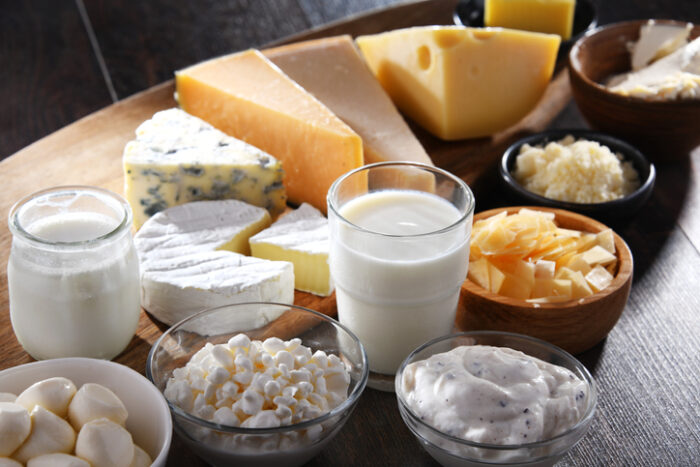To have strong bones, you need to increase your calcium intake with age.
entrance 24.09.2022 19:30 correction 2022.09.24 20:33
740 views
entrance 24.09.2022 19:30correction 2022.09.24 20:33
740 views
–
–
–

After menopause, women undergo a series of physical changes. Hormonal changes increase the risk of cardiovascular disease and accelerate skeletal aging. Bone health is easy to overlook because there are no specific abnormalities. Osteoporosis is an incurable disease that cannot be cured and bone density must be increased through ongoing management. In Korea, 60% of women aged 50 and over have suffered at least one fracture due to osteoporosis, and 50% of women aged 70 and over suffer from osteoporosis.
The research team of Professor Marta Pineta-Monkush of the Musculoskeletal Laboratory at the University of Oxford in England has published a study showing that people with low bone density or who have sustained fractures due to osteoporosis have a higher risk of the disease. coronary artery or stroke. For a lively and healthy old age, it is especially important to promote “bone health”.
◆ Although the size is different, it is best for bone health, anchovies and blue-green fish
The Korea Centers for Disease Control and Prevention (KCDC) recommends calcium intake of 1,000 mg per day for adults under 50 and 1200 mg per day for adults over 50 to prevent osteoporosis. The calcium content of the anchovy is very abundant at 509 mg per 100 g depending on the raw material. If you dry them in the sun one more time before eating them, the calcium and vitamin D are concentrated and the absorption rate in the body can be further increased.
Anchovies are also rich in omega 3 and taurine, which help lower blood cholesterol levels and activate brain cells. Nucleic acids activate metabolism and promote cell division. However, anchovies have a higher sodium content than other calcium-rich foods, so people with high blood pressure or those who need to control their weight should be careful.
Blueback fish is also a popular element in the osteoporosis prevention diet. Salmon is not rich in calcium, but it is rich in vitamin D, which aids in the absorption of calcium, and magnesium, which promotes calcium function. Excessive calcium intake increases the risk of cardiovascular disease due to the accumulation of calcium in the blood vessels and the progression of calcification. Magnesium is effective in preventing calcium-induced vascular calcification. Blue-backed fish include mackerel, saury, tuna, and salmon, which are popular as side dishes.
◆ Dairy products are GOOD, including milk, yogurt and cheese.
Milk is rich in proteins, minerals and vitamins and the phosphorus and calcium ratio is 1: 1 and the calcium absorption rate is very high, equal to 60-70%. In particular, the lactose in milk increases calcium absorption and improves immunity. When sodium builds up excessively in the body, calcium is excreted and the potassium in milk promotes sodium excretion, aiding in calcium absorption and excretion of waste products.
Also, dairy products like yogurt and cheese are good for bone health. However, there are many products that contain sugar, flavor enhancers, and spices for taste in cheese or yogurt sold on the market, so check the ingredients list carefully before choosing.
◆ Vitamin D is also important
Maintaining your blood vitamin D level is just as important as getting enough calcium to build strong bones. Vitamin D helps the body absorb calcium and helps prevent its elimination. Vitamin D is abundant in shiitake mushrooms, tofu, mackerel, and eggs and is sold as a health food.
Unlike other nutrients, vitamin D can be “synthesized” directly in the body when exposed to sunlight. Strength training thickens the muscles, which surround weakened bones, reduces the risk of fractures and helps improve physical activity. If you take a walk or train outdoors under an adequate amount of UV rays on a clear autumn day, vitamin D synthesis is promoted and you can enjoy the effect of one stone and two birds.
◆ Avoid this for bone health
Vitamin D promotes calcium absorption, but iron binds to calcium and is excreted from the body. Do not consume iron-rich orange juice, spinach and seaweed along with calcium-rich foods. Caffeine also interferes with the absorption of calcium, so it is advisable not to drink coffee or green tea immediately after meals or after consuming milk.
Spicy carbonated drinks not only contain a lot of sugar, they are also rich in “phosphoric acid”. Phosphoric acid causes calcium stored in the bones to escape, leading to osteoporosis.
–


